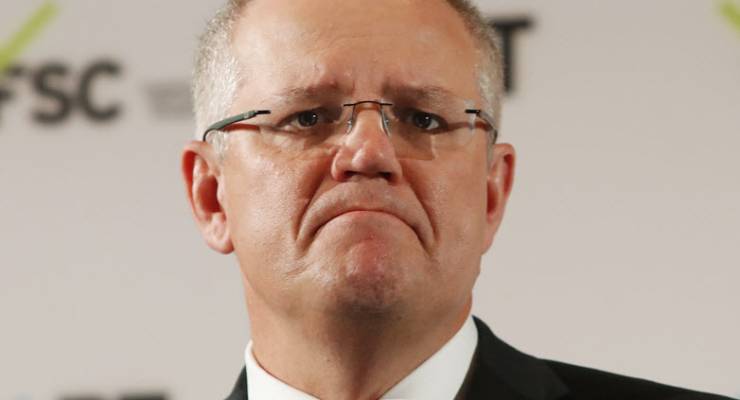
Figures released by the Australian Bureau of Statistics (ABS) on Friday show retail trade is in a serious slump, despite the robust international economic recovery. This data validates warnings that cutting wages, benefits and other income flows to half the citizenry will be disastrous for the economy.
The Australian Retailers Association responded with undisguised alarm. Executive director Russell Zimmerman said the ABS figures are “extremely frightening this close to the biggest trading period of the year”.
The dismal data
The increase in retail turnover in September this year over September 2016 was just 2.02%. That is the smallest rise since the ABS series began in 1982. It represents a substantial decline in real terms after adjusting for population – up 1.61% – and inflation, now 1.8%.
Taking the longer term view — turnover for 12 months to September this year — the picture is even worse.
Over the 35 years that the retail turnover figures have been published, annual totals have increased every year. The average rate of increase from September to September has been 5.91%.
Friday’s figures show Australia’s tally this year has risen by less than half that rate — by just 2.95%. Some sectors have actually gone backwards. Department store turnover slumped 1.75%. Only once before has there been a worse decline; that was in 2011, during the worst recession in 80 years. These are global boom times today.
Housing goods and clothing and footwear increased by 2.29% and 2.69% respectively, declines in real terms after reckoning for population and inflation.
Long-term trend
There is no joy in the long-term trajectory. For 34 consecutive months, the annual rate of increase in retail sales has gradually declined. This has never happened before. The longest downwards streak before this was 23 months during the early 1990s global recession.
The trajectory virtually proves this unprecedented collapse is the result of Coalition policies. From October 2011 until October 2014, the rate of increase in annual turnover grew almost in a straight line, with just a minor slump in mid-2013. The rate peaked in October 2014 at 5.57%. It has been downhill every month since.
The middle of 2014 was when Coalition policies shifting disposable income from the poor and the middle to the rich and the very rich started to take effect. The shift has advanced since.
International comparisons
That this is a problem restricted to those countries still implementing trickle-down economic policies becomes evident from country comparisons.
Of the 34 developed, capitalist countries comprising the Organisation for Economic Co-operation and Development, Australia was the only one not to experience severe contraction in the retail sector during the global financial crisis. Every country copped at least one year when retail turnover declined — except Australia.
The USA was typical with 14 months of annual retail turnover decline between August 2008 and October 2009. It had not had a negative month for 70 months before then, and has not had one since.
Australia clearly ranked first in the developed world on retail sector strength from 2008 to 2013. By a street. When those 34 countries are ranked today according to year-on-year rate of retail turnover growth, as shown at tradingeconomics.com, Australia is now placed 21st.
Decisions demanded
The Retailers Association urged the Government to “refocus on increasing disposable income.” So have others.
The government is not listening. Small Business Minister Michael McCormack – the third minister in three years – apparently prefers “analysis” based on personal opinions to hard ABS data.
A media release late last month was headed “Small business is thriving and confidence growing latest data shows”. McCormack claimed that “Key findings indicate the overall assessment of the economy has become more positive with small business confidence increasing to equal the highest level recorded in many years.”
That “data” was found in the Sensis Business Index, based on telephone interviews with selected business managers.
McCormack has made no comment on the ABS data. Nor has any other government minister.
Until they fix the failing economy by restoring buying power to the majority of hard-pressed Australians, they should not be surprised if buyers shop around for a new administration.








Hmm, we want people to spend but won’t give them money.
What could possibly be wrong with this scenario?
This govt can fool some of the people some of the time . . . but never all of the people all of the time. Keep it coming Alan. Facts trump crap!
Perhaps some Australians have resolved to no longer purchase crap they don’t need.
The galling terminology ‘retail therapy’ is heard less often lately.
Problem is that capitalism is about selling goods and services. The crap that people buy is the business model of a lot of retailers.
I sometimes wonder if people aren’t hoarding (buying while they can) for a financial freeze.
I think you are onto something there. The public now needs alternative ‘therapy,’ given the state of this government.
Anything that helps send Gerry Harvey et al broke, can’t be all bad.
Gerry Harvey
You are such a dill, scomo. Don’t you even read the ABS figures or ARA comments and their fear? Dear oh dear.